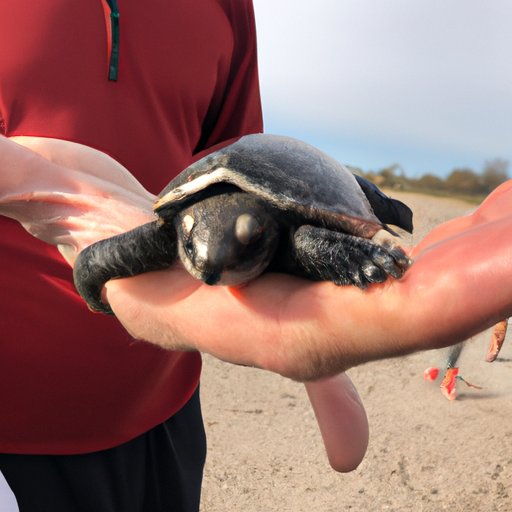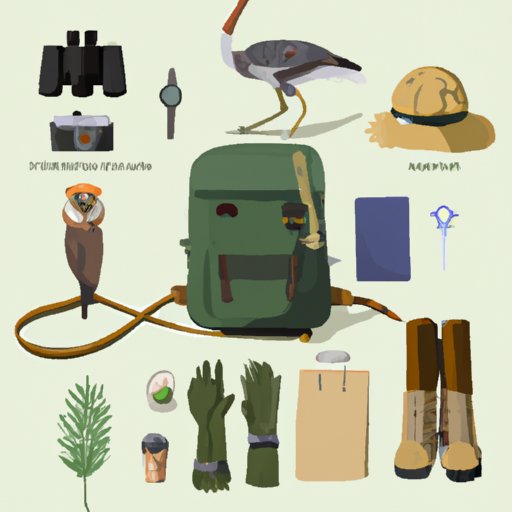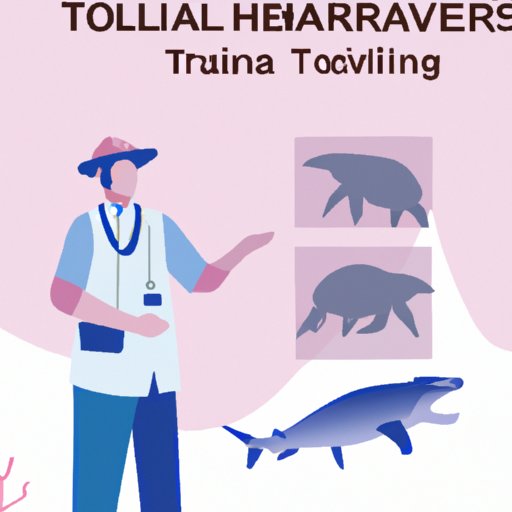Introduction
Zoology is a field of science that studies animals, their behavior, and their environment. The study of zoology can take place in a lab, in the classroom, or even in the wild. For some zoologists, work requires traveling to different parts of the world to observe and study animals in their natural habitats. This article will explore the opportunities available to zoologists who wish to travel, the benefits and challenges they may face along the way, and tips for making the most out of the experience.
What Types of Jobs Require Zoologists to Travel?
Traveling zoologists may find themselves working in various fields, including conservation, research, education, and wildlife management. For example, a zoologist may be hired to lead an expedition to a remote region to identify a species of animal that has yet to be documented. They may also be asked to conduct research on a particular species in order to better understand its behavior and habitat needs. Additionally, zoologists may be employed by zoos, aquariums, and other wildlife facilities to educate visitors about animals and their conservation status.
In addition to these roles, zoologists may also be employed as wildlife photographers, writers, and filmmakers. These positions often require travel in order to capture footage of animals in their natural habitats or to document the effects of human activities on wildlife populations. Working as a traveling zoologist can be a rewarding experience, but it also comes with its own set of unique challenges.

Benefits and Challenges of Working in These Positions
The benefits of working as a traveling zoologist are numerous. For one, zoologists get to explore new places and make connections with people from different cultures. They also have the chance to learn more about the animals they study and gain a deeper understanding of their behaviors and habitats. Additionally, working in these positions provides zoologists with the opportunity to develop their skills and knowledge in a variety of areas, such as research methods, data analysis, fieldwork, and communication.
Of course, there are also challenges associated with working as a traveling zoologist. For instance, zoologists may find it difficult to maintain a healthy work-life balance when they are constantly on the move. Additionally, they may struggle to adjust to unfamiliar environments and climates. Finally, it can be difficult to stay connected to colleagues and other professionals while traveling.

A Day in the Life of a Traveling Zoologist
The day-to-day life of a traveling zoologist can vary greatly depending on the specific job. However, it typically involves a combination of fieldwork, research, and data analysis. Zoologists may spend their days observing and documenting animal behavior or conducting experiments in the wild. They may also be responsible for collecting samples and analyzing data in order to determine the health of a population or to identify potential threats to a species’ survival. Additionally, they may be required to communicate their findings to other scientists or to the public.
In order to make the most out of their time on the road, zoologists must learn to balance their work and personal life. This includes setting aside time for self-care, such as exercising, eating well, and getting enough sleep. Additionally, zoologists should strive to keep in touch with family and friends back home in order to remain connected and supported.
Exploring the Benefits of Traveling as a Zoologist
Traveling as a zoologist provides many benefits, both professionally and personally. Professionally, zoologists can gain valuable experience by interacting with experts in the field, participating in field research, and attending conferences. Additionally, they can develop their skills in data analysis, communication, and problem-solving. On a personal level, traveling zoologists can take advantage of the opportunity to explore different cultures, meet new people, and immerse themselves in diverse environments.
Dr. William Schmitt, a professor of zoology at the University of Michigan, believes that “traveling as a zoologist provides a unique learning opportunity. It allows you to see things in person that you would never be able to experience in the classroom or lab.” He goes on to say, “It also gives you the opportunity to connect with other professionals in the field and to build relationships that could prove beneficial down the line.”
Common Challenges Faced by Zoologists When Traveling
As with any job, there are certain challenges that come with being a traveling zoologist. One of the most common challenges is adjusting to new and unfamiliar places. Zoologists must learn to navigate foreign cities, understand local customs, and adapt to different climates. Additionally, they must learn to manage their time effectively in order to complete tasks in a timely manner.
Another challenge that zoologists face when traveling is maintaining professional relationships. It can be difficult to stay connected with colleagues and peers while on the move, which can hinder collaboration and the exchange of ideas. Finally, zoologists must also be prepared for unexpected changes in plans and delays due to weather or other factors.
Tips for Making the Most Out of Traveling as a Zoologist
For zoologists who are interested in traveling, there are several steps they can take to make the most out of the experience. The first step is to plan ahead. Zoologists should research their destination, establish contacts in the area, and pack accordingly. Additionally, they should consider connecting with other professionals in the field and attending conferences to learn more about their chosen field.
It is also important for zoologists to take care of their physical and mental health while on the road. This includes getting enough rest, eating healthy meals, and staying active. Finally, zoologists should strive to make the most out of every opportunity by taking advantage of all that their destination has to offer.

How to Prepare for Traveling as a Zoologist
Traveling as a zoologist can be a rewarding and enlightening experience, but it also requires careful preparation. Zoologists should begin by researching their destination and familiarizing themselves with the local customs and language. Additionally, they should prepare financially by budgeting for their trip and obtaining any necessary visas or permits. Finally, it is important to pack smart. Zoologists should bring only the essential items and leave room for souvenirs.
Conclusion
Traveling as a zoologist can be an incredibly rewarding experience. Not only does it provide zoologists with the opportunity to gain valuable experience and knowledge, but it also allows them to explore new places, meet new people, and make meaningful connections. That said, it is important for zoologists to be aware of the challenges that come with the job, such as adjusting to unfamiliar places and managing time efficiently. With proper planning and preparation, however, zoologists can make the most out of their travels and gain invaluable insights into the world of zoology.
(Note: Is this article not meeting your expectations? Do you have knowledge or insights to share? Unlock new opportunities and expand your reach by joining our authors team. Click Registration to join us and share your expertise with our readers.)
